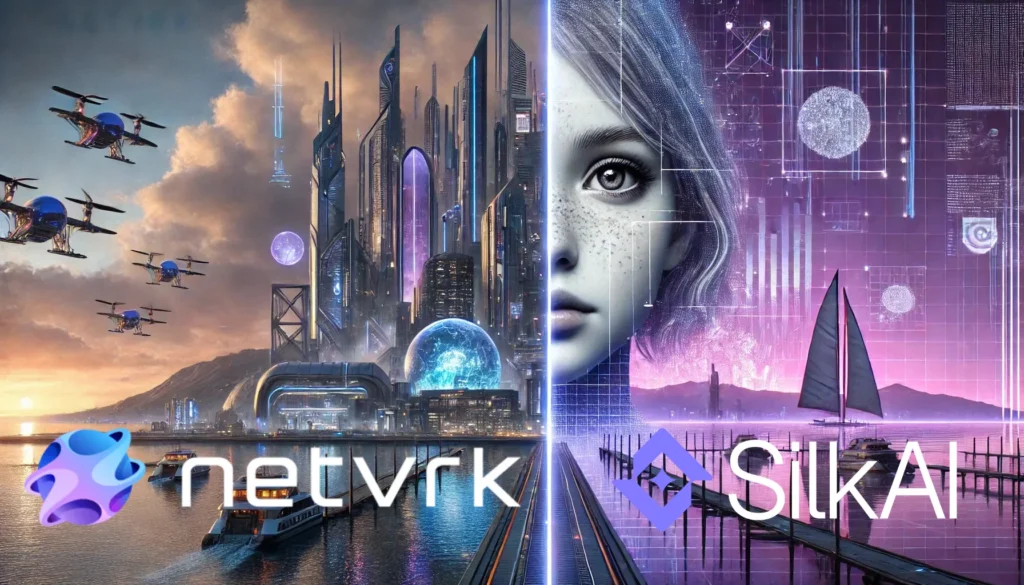

Introduction: Entering AI-Powered Virtual Realities
The metaverse, a blend of virtual reality, blockchain, and AI, is transforming how we socialize, work, and play. AI serves as the backbone of these immersive worlds, driving personalized experiences, automating interactions, and creating dynamic environments.
But with great power comes great responsibility. AI systems, while powerful, are prone to bias and ethical dilemmas that can mirror or even amplify real-world inequalities. This article delves into the challenges of maintaining fairness and ethics in AI-powered metaverse environments and explores solutions to ensure inclusivity and equality.
1. Understanding AI Bias in the Metaverse
AI bias occurs when algorithms make decisions that unfairly favor or disadvantage certain groups, often due to flawed training data or design. In the metaverse, this bias can manifest in several ways:
- Representation Issues: AI-generated avatars might lack diversity in skin tones, body types, or cultural symbols, alienating users.
- Unequal Access: Some AI-powered tools may prioritize users with better connectivity or more expensive gear, creating a digital divide.
- Discriminatory Interactions: Virtual assistants or NPCs (non-player characters) may respond differently based on a user’s accent, appearance, or demographic details.
2. Ethical Dilemmas in Virtual Worlds
AI in the metaverse brings ethical questions that are complex and unprecedented.
- Privacy Concerns: AI collects and analyzes user data to deliver personalized experiences. How can platforms balance personalization with user privacy?
- Manipulative Algorithms: AI can nudge user behavior, encouraging purchases or prolonging engagement. Where is the line between engagement and exploitation?
- Autonomy and Consent: Do users fully understand how their data shapes their experiences? Is there enough transparency in AI-driven decisions?
3. Challenges in Maintaining Fairness
Creating unbiased AI systems for the metaverse is no easy feat. Some of the major hurdles include:
- Data Limitations: Training AI requires vast datasets, but these often reflect societal biases, leading to flawed algorithms.
- Dynamic Environments: The metaverse is ever-changing, making it hard for AI to adapt without unintentionally favoring certain groups or behaviors.
- Global Scale: With users from diverse backgrounds, ensuring fairness across cultural and regional lines is daunting.
4. Solutions for Ethical AI in Virtual Worlds
While the challenges are significant, they are not insurmountable. Here’s how developers and platforms can address them:
- Diverse Training Data: Use datasets that represent a wide range of demographics, languages, and cultures to minimize biases.
- Transparent Algorithms: Open up AI systems to audits and provide users with clear explanations of how decisions are made.
- Ethics Committees: Establish independent oversight bodies to review and guide AI implementations in the metaverse.
- User Controls: Empower users with tools to customize their experiences and challenge AI-driven outcomes they find unfair.
- Continuous Feedback: Collect user feedback to identify and rectify bias or unethical behavior in real-time.
5. Real-World Examples of Ethical Concerns in the Metaverse
Several high-profile incidents have highlighted the importance of ethics in virtual worlds:
- Avatar Bias: A popular platform faced backlash when its AI-generated avatars lacked representation for darker skin tones. The company later introduced updates to ensure inclusivity.
- Algorithmic Exploitation: A VR shopping app used AI to upsell products aggressively, sparking debate about manipulative design.
- Data Breaches: In another instance, sensitive user data was leaked due to lax security protocols in AI systems.
These cases underscore the urgency of prioritizing fairness and ethics in AI development.
Conclusion: Building a Fairer Metaverse
“The Future of AI Is Ethical by Design”
The metaverse promises to reshape our digital lives, but only if we get its foundation right. Addressing ethics and bias in AI-powered virtual worlds is not just a technical challenge but a moral imperative.
By fostering inclusivity, ensuring transparency, and holding developers accountable, we can create virtual spaces that are fair, enjoyable, and empowering for all. The journey to a bias-free metaverse begins with intentional design and ongoing vigilance.
FAQs
1. How does bias affect AI in the metaverse?
Bias in AI can lead to unequal representation, discriminatory interactions, and limited access to tools or experiences, making virtual worlds less inclusive.
2. What are some solutions to ensure ethical AI in the metaverse?
Solutions include using diverse datasets, implementing transparency in algorithms, establishing ethics committees, and empowering users with control over AI-driven decisions.
3. Can AI systems in the metaverse ever be completely unbiased?
While eliminating all bias is challenging, continuous monitoring, updates, and user feedback can significantly reduce biases and create fairer systems.








